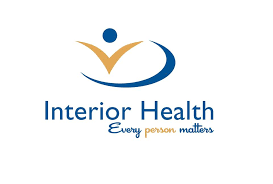BCCDC advises to vaccinate now as flu activity ramps up heading into the holiday season
BC Centre for Disease Control (BCCDC) influenza experts are advising British Columbians that influenza activity is increasing as we head into the holiday period. High-risk individuals and their close contacts should be vaccinated as soon as possible.
“Our monitoring suggests the influenza epidemic will coincide with the festive period in a couple of weeks,” said Dr. Danuta Skowronski, influenza lead at the BCCDC. “Since it takes about two weeks for the influenza vaccine to induce protection, now is the time for high-risk individuals and their close contacts to get vaccinated, if they haven’t already.”
High-risk individuals are those with underlying medical conditions like heart and lung disease or those with weakened immune systems that make it harder to fight respiratory infections. Complications such as pneumonia can be life-threatening for some and can lead to death.
Last year and the year before, there were severe epidemics due to the H3N2 kind of influenza A virus. This year, the H1N1 kind of influenza A is mostly circulating instead. Both cause similar illness with fever, cough, aches and fatigue but H3N2 viruses are hardest on the elderly, whereas H1N1 viruses tend to affect more children and non-elderly adults. The vaccine gives protection against both H3N2 and H1N1 viruses, as well as influenza B.
“The major kind of influenza virus we are detecting so far this year is H1N1,” said Dr. Skowronski. “That means that children and non-elderly adults with underlying medical conditions may especially need protection this holiday season when they gather with friends and family. They should be vaccinated and so should their close contacts.”
In addition tovaccination, there are other steps people can take to reduce their own risk and minimize the spread of influenza and other viruses to others. This includes:
· Wash your hands frequently especially if you’ve been out in public.
· Avoid touching your face, especially your eyes, mouth and nose.
· Cough and sneeze into your elbow. If you use a tissue, make sure to dispose of it properly and wash your hands.
· If you feel unwell, stay home so you don’t pass your infection onto others, especially those who may be at higher risk.
· If you are in close contact with people at higher risk of serious complications from influenza, get the vaccine and don’t visit them if you feel unwell.
“Influenza is a truly lousy gift for anyone to receive. If you become sick with flu-like illness this holiday season, stay home. Don’t re-gift this miserable illness to others,” advised Dr. Skowronski.
The latest influenza surveillance reports from the BCCDC are available here.
TheBC Centre for Disease Control, a part of the Provincial Health Services Authority, provides public health leadership through surveillance, detection, treatment, prevention and consultation services. The Centre provides diagnostic and treatment services for people with diseases of public health importance, and analytical and policy support to all levels of government and health authorities. The BCCDC also provides health promotion and prevention services to reduce the burden of chronic disease and preventable injury. For more, visit www.bccdc.ca or follow us on Twitter @CDCofBC.
The Provincial Health Services Authority (PHSA) plans, manages and evaluates selected specialty and province-wide health care services across BC, working with the five geographic health authorities to deliver province-wide solutions that improve the health of British Columbians. For more information, visit www.phsa.caor follow us on Twitter @PHSAofBC.






















